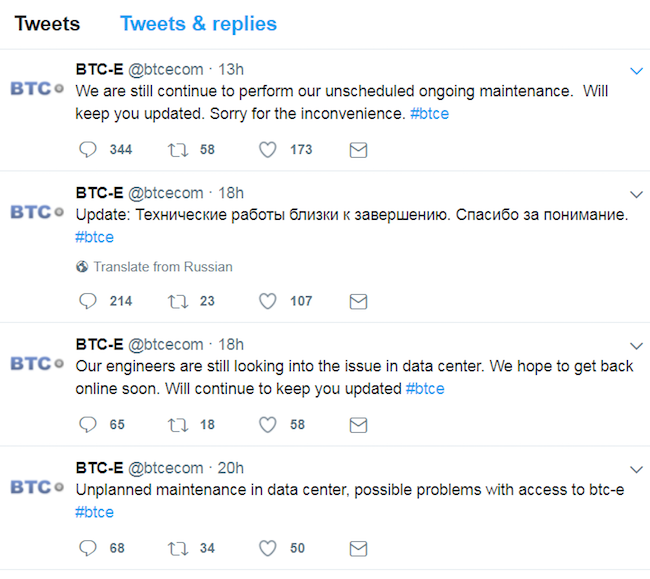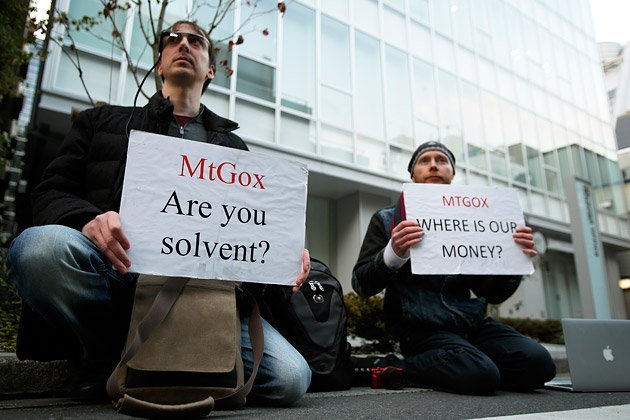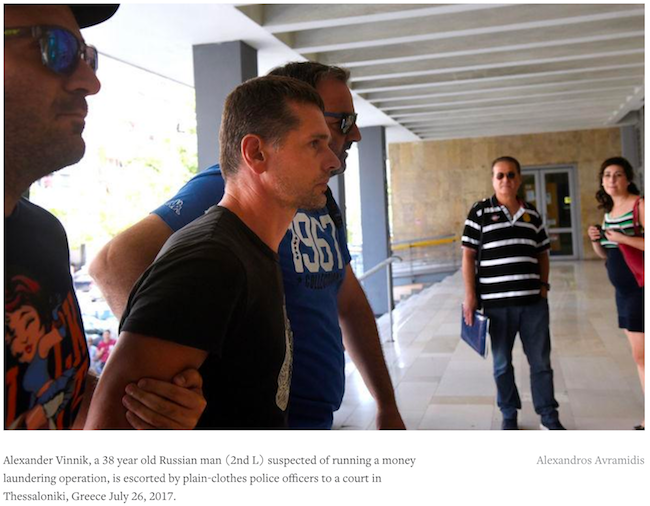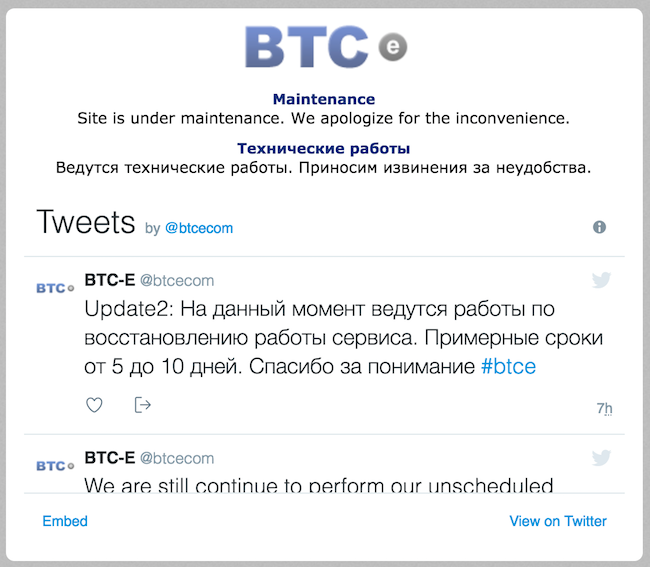
BTC-e, one of the oldest and largest cryptocurrency exchange platforms has been down since one day. Now, news have emerged that the alleged owner was arrested and might even have connections to Mt Gox!
For anyone who might be new to the crypto scene, let's give you some info about BTC-e and Mt Gox first:
What is BTC-e?
BTC-e is a Russian exchange platform founded in 2011. It handles about 3% of all Bitcoin transactions and has been a staple for many traders for years.
The founders and employees have always remained anonymous.
What is Mt Gox?
Mt Gox used to be one of the most popular exchanges that handled up to 60% of Bitcoin transactions in late 2013.
Then, in 2014, the site collapsed: 650.000 Bitcoins were stolen, hundreds of thousands of users lost their coins and until now, it still remains unclear how exactly that happened and who initiated the hack.

There has been so much going on in the last 24 hours that I'll briefly summarize the events for you.
Vinnik and BTC-e
On July 25, the BTC-e website went offline and they tweeted that they were "undertaking unplanned maintenance in the data center."
The website later only tweeted that they hoped to return back to business "soon".
Then today, a 38 year-old Russian man was arrested in Greece (while he was on holiday).
Later on, the media revealed that his name was actually Alexander Vinnik and that he was allegedly involved in a $4 billion money laundering scam.
Then, Reuters cited sources stating that Vinnik is "suspected of being the anonymous mastermind behind one of the world's oldest crypto-currency exchanges."
"Two sources close to the BTC-e virtual currency exchange, who declined to be identified while the case was open, said Vinnik was a key person behind the platform (...)"
During this whole time, BTC-e was down and didn't mention Vinnik's arrest at all.
The exchange's twitter account only stated that they were working on the issue and hoping to "be back online soon".

Connection to Mt Gox
A few hours ago, Wizsec (an informal investigative outlet from japan) stated that Vinnik was their main suspect for involvement in the Mt Gox case - after "years of patient work" where they purposely never dropped his name to "not tip suspects off and to maximize the chances of arrests".
They went on to explain:
In September 2011, the MtGox hot wallet private keys were stolen, in a case of a simple copied wallet.dat file. This gave the hacker access to a sizable number of bitcoins immediately, but also were able to spend the incoming trickle of bitcoins deposited to any of the addresses contained.Over time, the hacker regularly emptied out whatever coins they could spend using the compromised keys, and sent them to wallet(s) controlled by Vinnik.
By mid 2013, the thief had taken out about 630,000 BTC from MtGox.
After the coins entered Vinnik's wallets, most were moved to BTC-e and presumably sold off or laundered. In total some 300,000 BTC ended up on BTC-e, while other coins were deposited to other exchanges, including MtGox itself.
Some of the funds moved to BTC-e seem to have moved straight to internal storage rather than customer deposit addresses, hinting at a relationship between Vinnik and BTC-e.Moving coins back onto MtGox was what let us identify Vinnik, as the MtGox accounts he used could be linked to his online identity "WME".
There were other thefts and incidents explaining other missing funds from MtGox. More on that in later posts.

What is still left unclear?
There is still no confirmed information about how BTC-e was actually involved in the money laundering and Mt Gox case.
Since Vinnik has now been arrested, it will also be interesting if he will name anyone else in his official statement - if he does, he could finally shed some light on the Mt Gox case and also former Mt Gox CEO Mark Karpeles' trial. (Karpeles' is currently facing charges of embezzlement and data manipulation in tokyo, but pled not guilty.)
And finally, we still don't know exactly what position Vinnik had at BTC-e.
The article on Reuters only said that two sources "close to be BTC-e" confirmed that Vinnik was the "key person" behind BTC-e. But there has been no official statement yet.

What's next for BTC-e ?
We don't know whether the authorities are planning to shut down BTC-e for their investigations.
The exchange platform stated on twitter that they were working on restoring the platform (still not mentioning Vinnik or the arrest), and that they aim to be online within the next week or so.
"Update2: at the moment we are working on the restoration of service. Approximate terms from 5 to 10 days. Thanks for your understanding"
We don't know if they'll be able to keep their promises, or if government officials will take further action beforehand.

Conclusion
So in conclusion: The BTC-e exchange went offline, and a man called Vinnik was arrested in Greece who was named to play a key role in the exchange. Then, accusations were being made that Vinnik was involved in the Mt Gox theft and used BTC-e as part of his money laundering plan.
We are still not entirely sure what happened and I will keep following the events in this case closely.
A lot is happening in the crypto world right now, and with the Bitcoin hardfork coming on August 1, this is yet another reminder not to store your coins on exchange platforms as they could shut down at any time.
A much safer option is to store them in an offline wallet, as explained in my previous post.

© Sirwinchester
